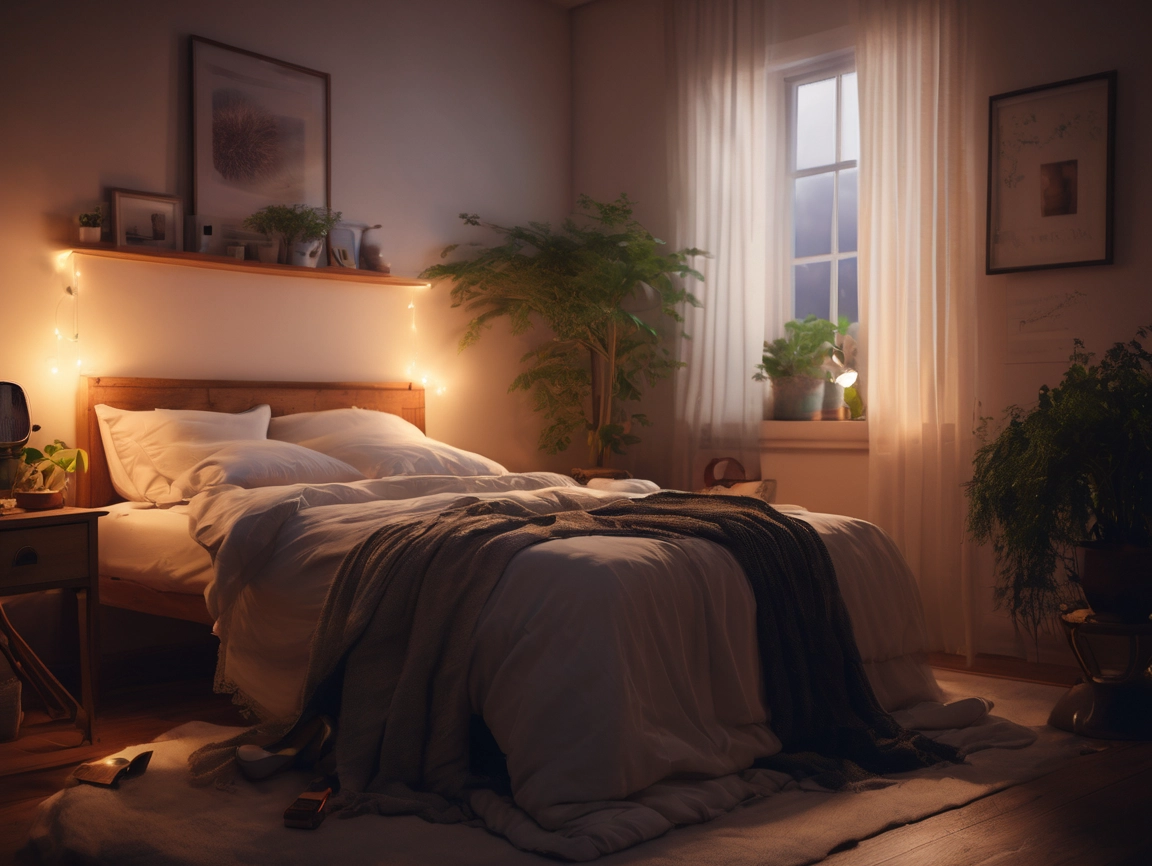We live in a digital era where nighttime screen addiction is one of the biggest silent threats to our health. Many of us lie down with the intention of sleeping, only to realize an hour later that we are still scrolling through reels, TikToks, or endless chat notifications. While older generations enjoyed natural rhythms of sleep, today’s glow of blue light keeps our minds active and our eyes strained.
But what really happens to our bodies when we stare at screens late into the night? And how can we protect both ourselves and our children from this rising problem? Let’s explore the hidden impact of nighttime screen addiction and five practical habits to beat it without deleting Instagram.
Table of Contents
Table of Contents
What Nighttime Screen Addiction Does to Your Body
When you scroll past bedtime, your body pays a heavy price. The blue light from phones and laptops tricks your brain into thinking it’s daytime. This suppresses melatonin — the sleep hormone — leading to shallow sleep, restlessness, and fatigue the next day.
Over time, poor sleep quality can cause:
- Hormonal imbalances
- Reduced concentration
- Weakened immunity
- Increased risk of anxiety and depression
A single night of nighttime screen addiction can disrupt your body’s natural circadian rhythm, but long-term patterns create deeper health concerns.
Harvard Health explains how blue light interferes with sleep cycles and overall health.
How Nighttime Screen Addiction Damages Your Eyes
Our eyes are not built for glowing pixels. Extended late-night scrolling can lead to:
- Digital eye strain: dryness, burning, and blurred vision
- Weakening of eye muscles: caused by prolonged focusing
- Increased risk of myopia: especially in younger generations
- Headaches and migraines: linked to eye strain
Older generations spent evenings in candlelight, reading books or talking with family. Their eyes rested naturally. Today, nighttime screen addiction exposes even children to harsh blue light, creating an epidemic of vision problems earlier in life.
Why Do We Keep Scrolling?
If we know screens harm us, why can’t we stop? The answer lies in the dopamine loop. Every scroll, like, or notification delivers a small “reward” to the brain. Social media apps are designed for addiction, giving us the illusion of relaxation while quietly damaging our health.
This explains why people often call nighttime screen addiction “the modern insomnia” — we know it’s bad, but our brains crave the dopamine rush.
Children, Parents, and the Screen-Time Dilemma
The biggest concern today is not just adults — it’s children. Tablets, online classes, and video games mean kids are growing up with constant screen exposure. The impact of nighttime screen addiction on children includes:
- Disturbed sleep patterns
- Early vision problems such as dry eyes and nearsightedness
- Reduced focus and learning issues
- Behavioral challenges linked to poor rest
What Parents Can Do
Parents play a critical role. Here are a few practical strategies:
- Set household rules like “no screens after 9 PM”
- Encourage evening activities such as reading, puzzles, or storytelling
- Introduce screen-free bedrooms for children
- Lead by example — when parents scroll less at night, kids naturally follow
5 Nighttime Habits That Beat Screen Addiction
1. Set a Digital Curfew
Pick a “last scroll” time — ideally one hour before bed. Use built-in digital wellbeing tools to lock apps after your curfew. For families, make this a shared rule so children learn the importance of boundaries.
2. Switch to Warm Lighting
Soft, warm lighting helps the body recognize bedtime. Salt lamps or bedside lamps can replace harsh LEDs and reduce strain. This small step weakens the grip of nighttime screen addiction.
3. Create a Bedside Ritual
Replace scrolling with calming rituals: herbal tea, journaling, or reading a physical book. For children, bedtime stories strengthen family bonds while protecting their eyes.
4. Use the “Parking Lot” Trick
Worried you’ll forget tasks? Write them down before bed. This reduces the urge to “just check one more thing” online. For students, keeping a small night journal is a great replacement for screen time.
5. Start a Screen-Free Zone in Your Bedroom
Keep phones and tablets charging outside the bedroom. For kids, avoid letting devices into their rooms at night. Out of sight truly means out of mind when battling nighttime screen addiction.
Old Habits vs. New Realities
Our grandparents lived without glowing screens. Evenings were spent sharing stories, resting, or preparing for the next day. They naturally aligned with sunlight and enjoyed deep, restorative sleep.
Today’s generation has traded this balance for notifications, endless feeds, and strained eyes. Yet, the solution doesn’t require abandoning technology — only learning to control it. By applying new routines, we can protect our health while still enjoying the digital world.
Conclusion
Protecting your eyes and sleep doesn’t mean deleting apps or escaping modern life. It simply means setting boundaries so technology serves you, not the other way around. Parents and children alike must learn that eye health and sleep are treasures worth protecting.
“Your eyes are the window to your soul — don’t let screens dim the light within.”
Why is screen time before bed harmful?
Screen time before bed can disrupt sleep by interfering with the body’s production of melatonin, leading to difficulty falling asleep and decreased sleep quality.
How can I protect my eyes if I use screens late at night?
You can reduce harm by using blue light filters, adjusting screen brightness, keeping devices at eye level, and following the 20-20-20 rule (look 20 feet away every 20 minutes for 20 seconds).
How does late-night screen time affect children?
Children’s eyes are more sensitive, and late-night scrolling can disturb their sleep cycles, reduce focus in school, and cause early symptoms of digital eye strain. Parents should set device curfews and encourage screen-free bedtime habits.
Follow Improve Her Health Magazine the most powerful women’s health blog where every story is crafted to inspire balance, beauty, and strength. Don’t just read, be part of the movement to live healthier and brighter every day.




